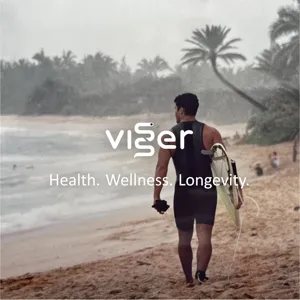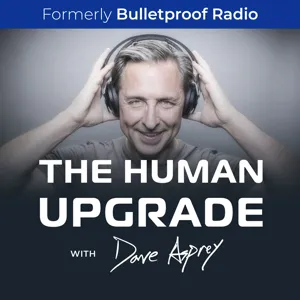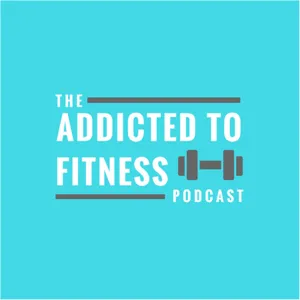Podcast Summary
Exploring the therapeutic potential of psychedelics: Psychedelics like LSD, psilocybin, and ketamine have shown promise in treating stress, anxiety, and depression by interrupting negative thought loops in the brain, offering hope for individuals suffering from chronic mental illnesses such as PTSD, depression, and OCD.
Psychedelics, such as LSD, psilocybin, and ketamine, have shown promise in treating stress, anxiety, and depression by interrupting negative thought loops in the brain. These thought loops are a common factor in various chronic mental illnesses, including PTSD, depression, and OCD. While the use of psychedelics for therapeutic purposes was once controversial, recent research suggests that they can be effective in helping individuals break free from debilitating thought patterns. Professor David Nutt, a leading expert on drugs and their effects on the brain, shares his insights on the history, mechanisms, and potential benefits of psychedelics in this episode of Doctor's Kitchen podcast.
Psychedelics disrupt high-level cortical processes and promote neuroplasticity: Psychedelics like ketamine and DMT have unique effects on the brain, disrupting cortical processes to change maladaptive thinking patterns and promoting neuroplasticity, leading to long-lasting improvements in mental health conditions.
Psychedelics, such as ketamine and DMT, have a unique effect on the brain compared to traditional antidepressants. While antidepressants primarily target the emotional centers in the limbic system, psychedelics disrupt high-level cortical processes to break down maladaptive thinking patterns. Additionally, psychedelics promote neuroplasticity, allowing individuals to reframe their perspectives and create new ways of thinking. Neuroplasticity refers to the brain's ability to change, and psychedelics are believed to increase synaptic connections, making the brain more connected and flexible. Research using techniques like positron emission tomography (PET) and functional magnetic resonance imaging (fMRI) has shown that psychedelics can lead to increased connectivity and flexibility in the brain, which may predict better therapeutic outcomes. These changes can be long-lasting, offering hope for individuals suffering from mental health conditions.
Understanding the Brain's Complex Systems and the Effects of Psychedelics: Psychedelics target specific brain receptors for unique effects, while nootropics promote overall brain health and function
The brain is made up of multiple interconnected networks, including a visual system, hearing system, speaking system, motor system, feeling system, and several thinking systems. The most notable of these thinking systems are the self-reflective system, the system that drives action, and the system that evaluates the relevance of external stimuli. Psychedelic drugs, such as LSD, DMT, and psilocybin, target a specific serotonin receptor in the brain, leading to changes in higher brain functions. These changes can help break down overconnectivity in the default mode network, which is linked to depression and negative thought loops. Unlike psychedelics, nootropics are a different class of drugs that promote brain metabolism and growth in a general way. The human brain, with its 100 billion neurons, has more computing power than all the computers on earth combined. Psychedelics specifically target certain cells and receptors, making them distinct from nootropics.
Neurons and Psychedelics: Unlocking the Brain's Potential: Psychedelics, particularly those targeting layer 5 pyramidal cells' 2A receptors, can enhance neuroplasticity and encourage new ways of thinking. Ketamine, while widely used in research, is the least studied in terms of its effects on the brain.
Our brains function as a network of interconnected neurons, with a specific type called layer 5 pyramidal cells playing a crucial role in communication and making us "clever" humans. Psychedelic substances target these neurons, specifically their 2A receptors, which are linked to neuroplasticity and the ability to think differently. These receptors may encode significant experiences, allowing us to break free from limiting thought patterns. The utility of various psychedelics for specific disorders is still uncertain, with ongoing research needed to determine their effectiveness for conditions like depression, anxiety, and PTSD. While ketamine is the most used psychedelic in research today due to its availability, it is actually the least studied in terms of its effects on the brain. This is because it was originally developed as an anesthetic, and recent interest in its therapeutic potential comes from the psychedelic research explosion. Despite some concerns about ketamine's potential for abuse, there is a growing desire for the ketamine community to catch up with the progress made in understanding the effects of psychedelics on the brain.
Discovering the dangers of psychedelic drug misuse: Misuse of psychedelics like Ketamine and LSD can lead to tolerance, bladder problems, and even a dementia-like state. Political factors played a role in their ban during the Nixon era.
While Ketamine, a popular psychedelic drug, can offer therapeutic benefits when used under medical supervision, its recreational use can lead to serious health issues, including tolerance, bladder problems, and even a dementia-like state. The US Army discovered that psychedelics like LSD produce a powerful tolerance that cannot be overcome, making repeated use unnecessary and potentially harmful. The ban on psychedelics, including LSD, was a political move during the Nixon era, aimed at suppressing the anti-war movement and manipulating public opinion. It's important to remember that while these substances can offer potential benefits, their misuse can lead to significant harm.
Political climate impacted drug research and legislation: The political climate of the 1960s and 1970s led to the prohibition of certain drugs, halting research and treatment progress, and prioritizing social control over health benefits.
The political climate of the time significantly influenced drug research and legislation, particularly during the 1960s and 1970s. Young people's opposition to war and American foreign policy led to the prohibition of certain drugs, such as LSD, in an attempt to quell protests. However, this ban had no impact on the use of these substances and instead halted research and treatment progress. Furthermore, international organizations like the UN and WHO, which were heavily influenced by American funding, followed the US's lead in drug prohibition. This is evident in the UK's decision to ban cannabis in 1971, following American pressure. The ban on these substances not only had social and cultural implications but also impeded medical advancements. For instance, before the ban, there were over 1,000 clinical papers on the utility of psilocybin and LSD, but this research came to a halt once these substances were deemed illegal. The political decisions surrounding drug prohibition often prioritized social control over health benefits.
Loss of 10 Million Lives Due to LSD Ban for Alcoholism Treatment: The ban on LSD for medical research and treatment of alcoholism resulted in the loss of 10 million potential lives due to its proven efficacy being denied and dismissed.
The ban on certain psychedelics, specifically LSD, for medical research and treatment, particularly in the case of alcoholism, has led to an estimated 10 million potential lives saved being lost over the past 55 years. This is based on the proven efficacy of LSD demonstrated in clinical studies back then, which was denied and dismissed, despite evidence from thousands of research papers. The potential impact is significant, as LSD has been shown to have a much greater effect size in treating alcoholism than the best subsequent treatments. This ban, driven by societal prejudices and politics, has resulted in a tremendous loss of human life. While there are harms associated with LSD, they are not unique to this substance and are often exaggerated due to societal biases. The potential benefits of this research and treatment cannot be ignored, and the denial of these proven medicines to patients is a crime against humanity.
Psychedelics have low toxicity but are heavily restricted: Psychedelics, like psilocybin from magic mushrooms, have extremely low toxicity compared to commonly used substances, but are heavily restricted due to misconceptions and politics.
Psychedelic drugs, such as psilocybin from magic mushrooms, have extremely low toxicity in overdose compared to commonly used substances like alcohol, tobacco, and even drugs like ketamine or benzodiazepines. Despite this, they are classified as Schedule 1 drugs in many countries, making them difficult to study and use in a medical setting. However, when experts have looked at the harms of various drugs, psychedelics consistently rank at the bottom. This is true even when used recreationally without control, and becomes even more favorable when used in a medical setting. The misconceptions and politics surrounding psychedelics have led to their criminalization, such as the infamous case of magic mushrooms in Camden, London, in the early 2000s. Despite their low harm potential, psychedelics continue to be stigmatized and restricted, while more harmful substances remain readily available.
UK government's hasty decision to ban magic mushrooms: The UK government ignored expert advice and irrationally placed magic mushrooms in Class A, emphasizing the political nature of drug policies and the need for an independent committee.
The UK government's handling of drug policies, specifically regarding psychedelic mushrooms, has been marked by a lack of consultation with experts and an apparent political motivation. A group of senior officials decided to ban magic mushrooms without proper consultation with the Advisory Council on the Misuse of Drugs (ACMD), an independent committee that used to have significant influence over drug policy. The government ignored the ACMD's advice and put these mushrooms in Class A, despite the absurdity of such a move, given that they were previously legal. This incident highlights the political nature of drug policies and the lack of a rational, evidence-based approach. It also underscores the importance of an independent committee to provide unbiased assessments of drug harms and guide policy decisions.
Microdosing: The Unproven Claims and Potential Benefits: Despite anecdotal evidence, there's no solid proof that microdosing improves mood or creativity objectively. Belief in a microdose can lead to perceived benefits, but megadoses are harmful and offer no extra benefits. Trips can provide long-term well-being, and psychedelics may improve color blindness temporarily.
While there is anecdotal evidence suggesting that microdosing psychedelic substances like LSD and magic mushrooms can improve mood and creativity, there is a lack of systematic studies due to legal restrictions. Some research suggests that there may be an expectation effect, meaning that believing one is taking a microdose can lead to improved performance and mood. However, there is no scientific evidence proving that microdoses work objectively. On the other hand, megadoses of these substances, which involve taking significantly larger doses, have been proven to add harm without providing any additional psychological benefits. Trips, or the experiences one has while under the influence of a psychedelic substance, have been reported to provide well-being benefits for healthy individuals, which can last for weeks or even months. An intriguing finding is that psychedelics have been shown to improve color blindness, and this effect can persist for a significant period of time. However, more research is needed to fully understand the potential therapeutic effects and risks associated with the use of psychedelics.
Psychedelics can enhance color vision for some individuals with color blindness: Psychedelics like psilocybin can temporarily lift the brain's suppression of color vision, enabling unique experiences and potential therapeutic benefits for individuals with color blindness. Research suggests this effect might be linked to the brain's default mode network being altered.
Psychedelics, such as psilocybin, can enhance color vision for some individuals with color blindness. This effect is believed to be due to the brain's suppression of color vision being temporarily lifted by these substances. The efficiency of the brain typically suppresses less important sensory information, like color, to focus on more essential aspects like language and facts. However, psychedelics can potentially break down this suppression process, leading to unique experiences and insights. An interesting anecdote shared in the discussion involved a man who, after taking psilocybin, was able to see the colors in a famous painting for the first time due to his color blindness. This phenomenon was further explored in a study where about half of the respondents in a global drug survey reported improved color vision after using psychedelics. The researchers suggest that this effect might be linked to the brain's default mode network being altered, as seen in both psychedelic experiences and transcendental meditation practices. The discussion also touched upon the idea that psychedelics can serve as a shortcut to improving thought loops and negative thinking patterns, potentially offering unique benefits compared to other therapeutic modalities like CBT. The findings from this research could have significant implications for understanding the mechanisms behind these substances and their potential therapeutic applications.
Psilocybin's Role in Facilitating Meditation and Alleviating Depression: Psilocybin, a compound in magic mushrooms, reduces activity in the posterior singular cortex, enabling deeper meditation and depression relief. Post-trip therapy with acceptance commitment therapy or mindfulness therapy may be effective, while microdosing is explored for long-term wellness.
Psilocybin, a component found in magic mushrooms, has been shown to facilitate meditation and help alleviate treatment-resistant depression. This is because it dampens down activity in the posterior singular cortex, a part of the brain that integrates all senses, allowing people to lose themselves and enter a meditative state. While CBT may not be the best form of therapy after a psychedelic trip, other psychotherapies focusing on the person and the past, such as acceptance commitment therapy and mindfulness therapy, might be more effective. However, the challenge lies in keeping people well after treatment, and microdosing with psilocybin is being explored as a potential solution. The future of psychedelics in primary care is promising, with young psychiatrists showing interest and ECT suites potentially being converted into psychedelic suites. However, the legality and accessibility of these substances remain major obstacles.
Canada's Inconsistent Regulations on Psychedelic Therapy: Despite potential benefits, inconsistent regulations limit access to life-saving psychedelic therapies for mental health and dementia patients in Canada. Advocacy and private funding are crucial for progress.
Psychedelic therapy, specifically ketamine and psilocybin, is gaining popularity in Canada for mental health treatment, but the regulations surrounding their use are inconsistent and limiting. GPs, with their holistic approach, could potentially play a significant role in administering these treatments. However, the current regulations make it difficult for those suffering from serious mental illnesses to access these potentially life-saving therapies, even as euthanasia is an option in certain circumstances. Research suggests that psychedelics could also have a role in treating dementia due to their anti-inflammatory properties, but long-term studies are needed to confirm their effectiveness. The global community is working towards changing the UN Convention to recognize psychedelics as medicines, but progress is slow. Private funding from wealthy individuals and organizations is essential to further research and development in this field. In the meantime, it's crucial to continue advocating for greater access to these treatments for those who need them most.
Philanthropy-driven psychedelic research in Australia leads to treatment approvals: Australian charity Mind Medicine Australia provides medical-grade psilocybin and MDMA for depression and PTSD treatments, potentially expediting availability in other countries and offering a solution to big pharma's patent concerns.
The philanthropy-driven research in psychedelics, primarily funded by American donors, has led to significant breakthroughs in Australia, where psilocybin and MDMA have been approved for treatment-resistant depression and PTSD, respectively. This is a groundbreaking development as these medicines have not been licensed to a drug company, but rather a charity called Mind Medicine Australia will provide the medical-grade substance for doctors. This model could potentially expedite the availability of these treatments in other countries, as it bypasses the lengthy and expensive regulatory process required for drug companies. However, there is a concern that big pharma may try to claim patents on particular compounds, potentially stifling the field. A new model, like the one in Australia, could offer a solution by allowing charities to provide the medicine once regulations change. Dr. Sacks has spent the last 20 years researching replacements for alcohol, and his first success is a botanical drink called Sentia, which targets the GABA system in the brain, similar to alcohol but without the toxicity, addiction, and withdrawal.
Developing a drink with positive effects of alcohol without the negatives: A company is creating a drink called Sentia, targeting neurotransmitter GABA for relaxation and sociability, and developing a selective small molecule to offer alcohol's positives without negatives, aiming to bring it to the alcohol industry as ingredient arkarel.
A company is developing a drink called Sentia, which targets the neurotransmitter GABA to provide relaxation and sociability without the negative effects associated with alcohol. This product is not dangerous but is recommended for those with slow alterations in mood. The company aims to invent a selective small molecule that offers the positive effects of alcohol without the negative side effects, which they plan to offer as an ingredient to drinks companies for use in alcohol-free beverages. The drink has received awards at the International Drinks Festival, and the company is currently testing prototypes and raising funds to bring this goal to fruition. The ultimate ambition is to offer a product called arkarel to the alcohol industry, allowing for the creation of alcohol-free versions of various beverages.
Shop Quince for affordable luxury with ethical standards: Shop Quince for high-quality, affordable luxury items with ethical production standards, using code 'buttery' for first-time discount.
Quince offers high-end goods at affordable prices without compromising ethics or quality. With discounts and promotions like 15% off your first order using the code "buttery" at bolandbranch.com, you can indulge in luxurious items such as buttery soft cashmere sweaters and Italian leather bags without breaking the bank. Quince ensures these goods are produced in a safe, ethical, and responsible manner by partnering only with factories that adhere to these standards. So, when you're shopping on a budget, remember Quince as your go-to destination for stunning, high-quality items that won't strain your wallet. Visit quince.com/style for free shipping and 365-day returns.






